
THROUGH A GLASS DARKLY OUT OF THE DARKNESS VOLUME 4 | ISSUE 1 SPRING 2023
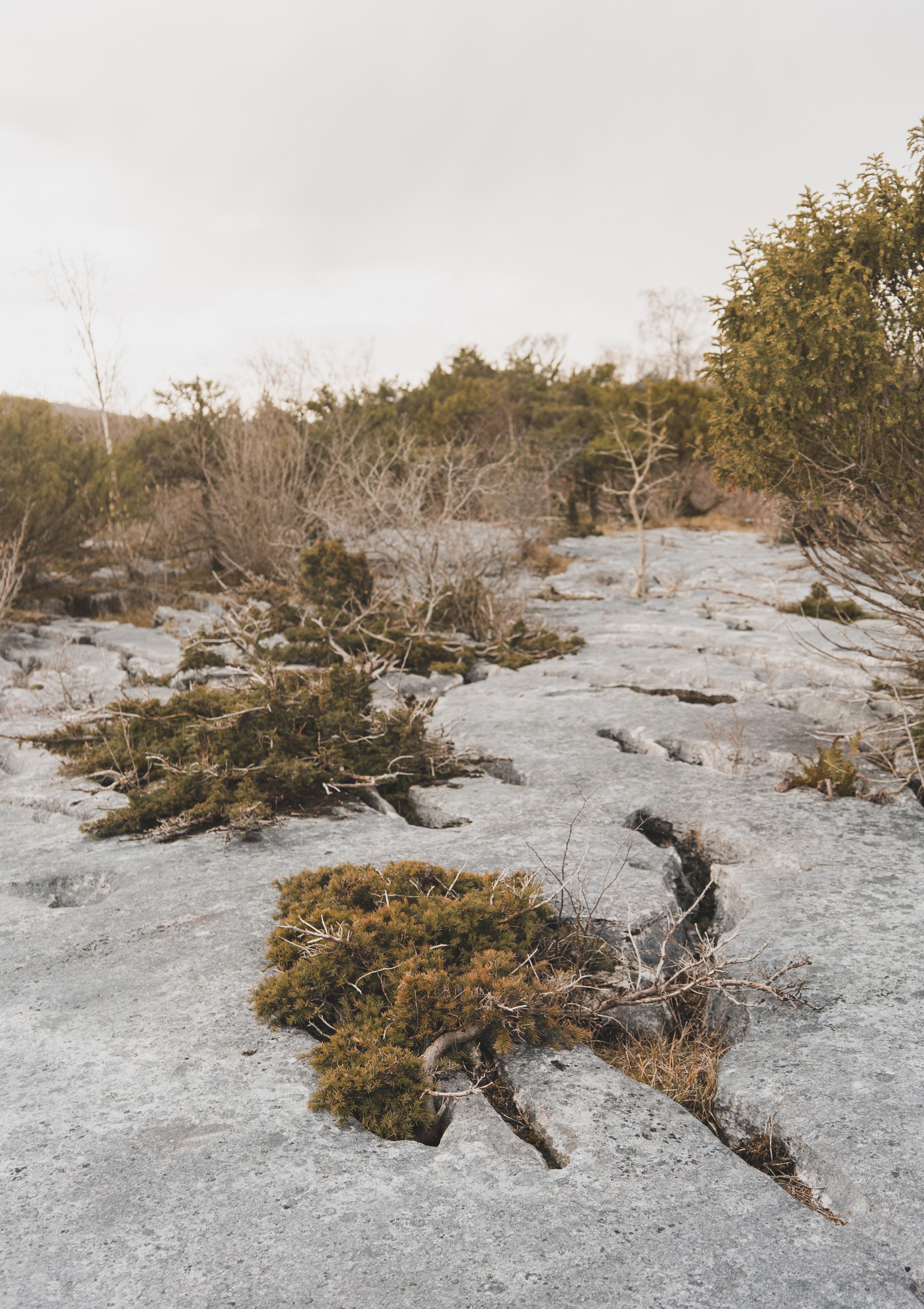
FOR NOW WE SEE THROUGH A GLASS, DARKLY; BUT THEN FACE TO FACE. (1 COR 13:12A KJV)
3 contents EDITORS’ NOTE
THRONE Eniola
Susie Dowsett Anonymous Elizabeth Fair Elizabeth Fair Jonah
Marie-Jo Beaubrun Rory Kunz Grace Burney 04 06 08 10 12 14 16 18 22 26 FRACTURED IN ALL THINGS UNTITLED NEW VOICES HOLY GROUND WHEN THE RAIN COMES GIVING UP KNOWING: 2000 WORDS OF TRYING NOT TO SPEAK
KINTSUGI
Awodiya
Ling
Finding evidence of darkness is not exactly a difficult task. All it takes is the buzz of a news notification, a radio on in the background, a glance at a website’s homepage, a scroll through instagram. Be it the lingering effects of pandemic, war, cost of living crisis, heartbreaking mental health statistics, or the latest political scandal, there is always the next story of injustice, loss, difficulty, darkness to remind us of the brokenness of our world.
The good news never seems to make the biggest headlines. It can be suffocating. This doesn’t mean we should bury our heads in the sand, ignoring those things that make us uncomfortable - it is reality, and to deny it or hide from it is dangerous.
Yet, it can be suffocating, and it’s just as important to look out for those glimmers of hope among headlines of doom. The no longer endangered animals in an era of rapid climate breakdown. The reclaimed cities no longer lost to those who stole them in war. A Clubcard deal on your favourite snack on a shelf of everincreasing prices. Obscured though our vision may be, even in the thickest of forests, there’ll be a break in the trees, and eventually, a shaft of light, giving hope of a way out.
When we met as a team to discuss a theme for this issue, we felt strongly that we needed to reflect this tension. How could we choose a title that tells exclusively of positivity and joy without leaving space to grapple with the pain that surrounds many of us. Singing of sunshine and rainbows amidst such evident storm clouds which call for our attention. However, there is good news! And as Christians, we believe in a God that is good and faithful and present even in the midst of the most intense suffering. Thus, Out of the Darkness was born.
This issue wrestles with the challenges of coming out of the darkness. The things it can be painful to let go of, the wounds we have to heal
editors’ note
as we truly take hold of the promise of light. It is a gradual process. The sun does not rise all at once, it pops its head above the horizon as if to check the coast is clear, before painting the sky in an explosion of colour, and shining on reliably throughout the day. Throughout this issue there are pieces that speak to all stages of the process. Celebrations of the brightest of lights, alongside the darker stages that precede it.
But remember, those places of darkness can also be backdrops for beauty. It is underground, in the dark and damp, that a seed germinates and life is created. Many people sleep best with the lights off and doors closed - a warm and safe environment lending itself to deep rest. When we are lost and can’t see the way, such a humbling reminder of our humanity can lead to a beautiful (though not always easy!) surrendering of control, where we rely on God more than ever to guide us.
So, we invite you to glance, read, spend whatever moment you have and reflect on this collection of carefully crafted pieces offered by our talented contributors. We hope that it blesses you and encourages you of the hope that comes from being loved by a God who deeply understands, and promises to walk with us through our darkness.
~
But you are a chosen people, a royal priesthood, a holy nation, God’s special possession, that you may declare the praises of him who called you out of darkness into his wonderful light.
1 Peter 2:9
Exec
4
Susie Dowsett and Lily Carson TAGLY

K I N T S U G I
Eniola Awodiya
Kintsugi (金継ぎ, “golden joinery”), also known as kintsukuroi (金繕い, “golden repair”), noun - the Japanese art of repairing broken pottery by mending the areas of breakage with lacquer dusted or mixed with powdered gold, silver, or platinum. As a philosophy, it treats breakage and repair as part of the history of an object, rather than something to disguise.1
About the fall and every one I’ve made since, about the cost of my sin and everything my God does to pay it. Over and over again. To encourage you that there is no depth, cavern or mistake too great to separate You from His love. And to remind you of the Nature of Our God, whose mercy makes all things beautiful.

My people have committed two sins: They have forsaken me, the spring of living water, and have dug their own cisterns, broken cisterns that cannot hold water.
Jeremiah 2:13 NIV
The Potter’s hands they formed me While I was in the womb He knew me Perfect and whole I created thee Very good I saw my creation and declared ye Together, with My Maker I rested In the depth of His glory The presence of His power He walked amongst me Unity, As one like Him, I was called to be
Yet from those great heights I fell Dizzying, overwhelming and shattering Splattering shards of pride and lust Enough to sever Everlasting Even this cord of three plus one?
Cut off from your glory From the life to which you had called me I said my God I am sorry You said my love, let Me write your story
With nail pierced hands and a tear stained face My King hands me His crown of thorns With the gold of His eternal circlet Molten down for my cracks to adorn His beauty stands in what was once broken His love drowns out my shame And The Potter’s hands hold what is formed and now able again to contain
In my cracks is where His strength is seen In my weakness look out for His beauty See me now The Potter’s creation Living water held secure within me
Eniola is a 4th year Medicine student at Green Templeton College. When she’s not at the track or busy convincing people to join OUAC, she can be found napping, nerding out about medicine, or more recently, brushing up on some rusty piano skills.
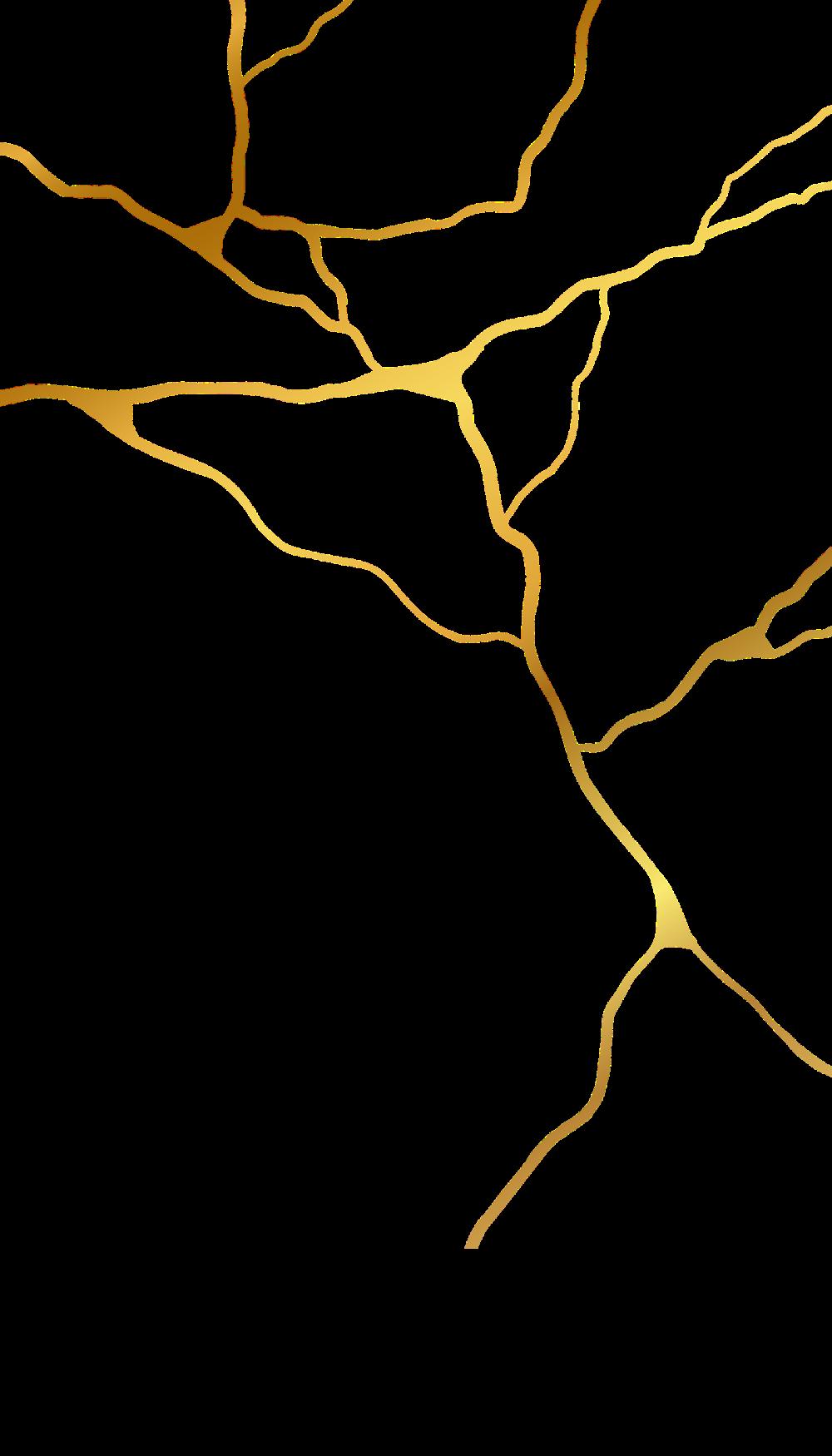
7
7
untitled
Susie Dowsett

Susie is a PPE finalist at LMH. She spends more time painting and wrestling with InDesign than her tutors would approve of and is yet to find anyone that approves of her knowledge of her favourite bird - the cassowary.
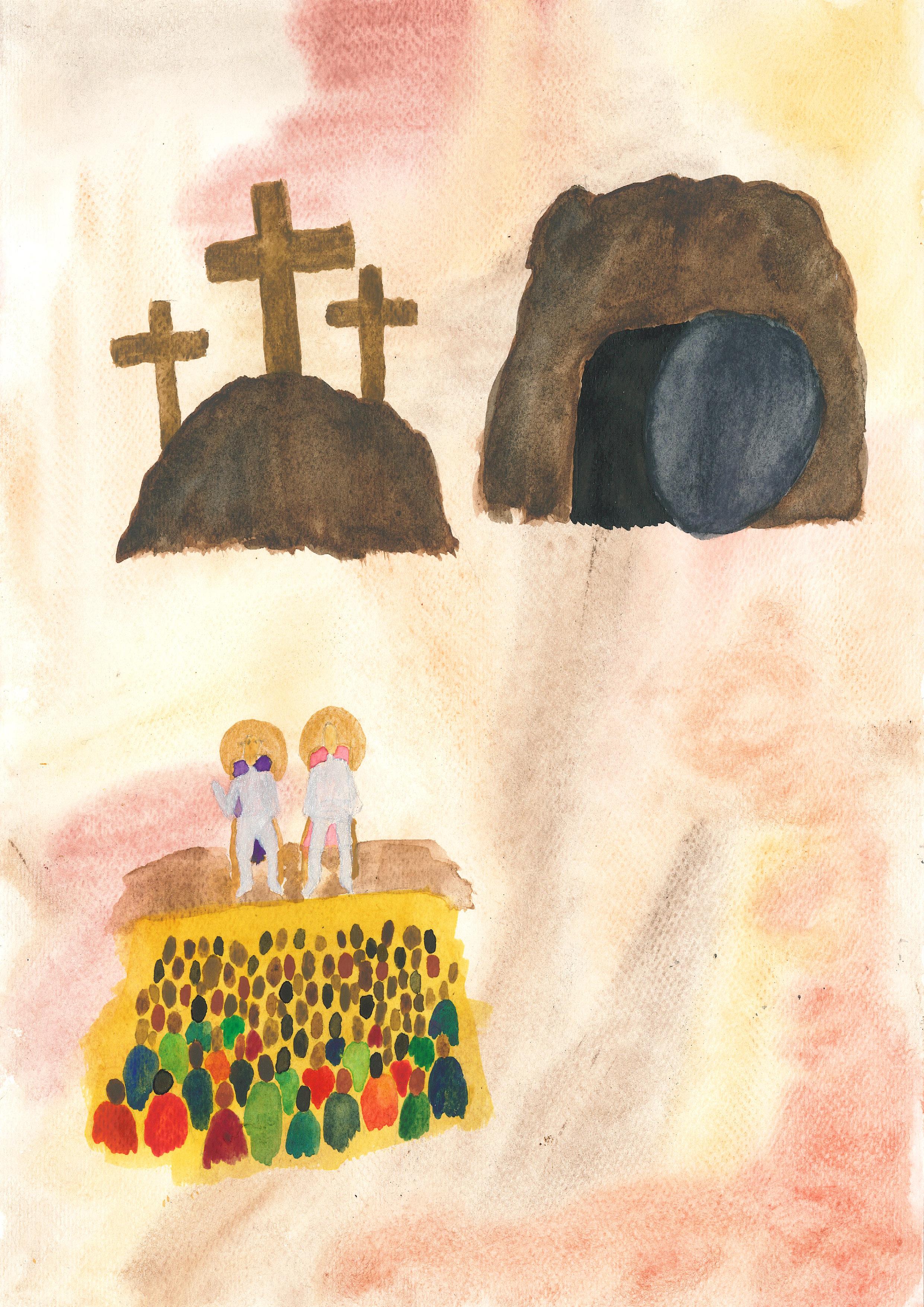
9
how can she believe that her punctured skin is known and loved and precious
and how can she believe that her fractured mind has a hope and a future
until she meets her Jesus who shows her His plans and that she’s not the only one with scars on her hands

fractured
Anonymous
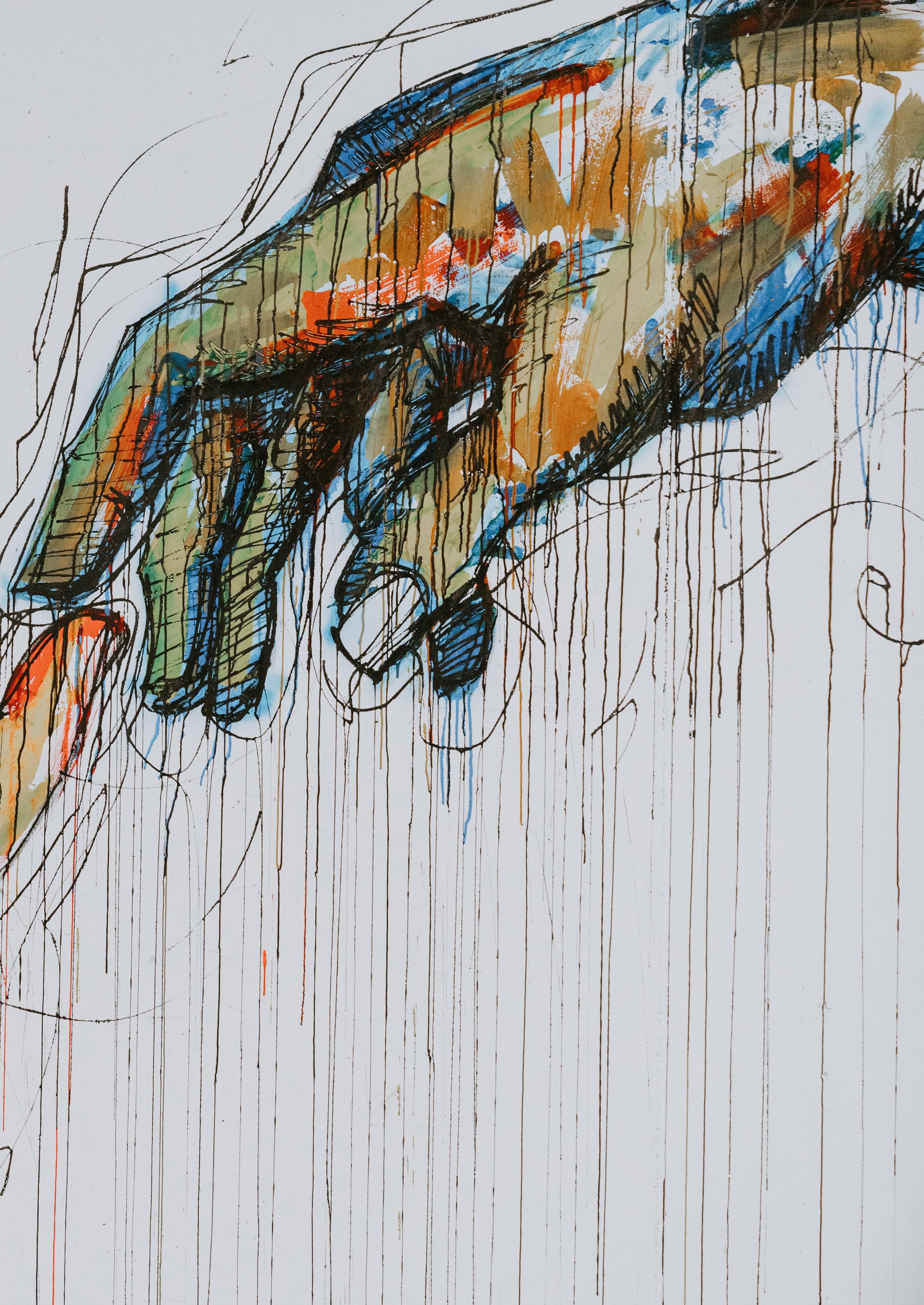
when the rain comes
Elizabeth Fair
When the rain comes I often find I don’t know what to do.
All the time Spent preparing Should now be of use.
And yet, I find myself At a loss, and Unsure of where to begin.
And so I sit, Gazing out of the window, When the rain comes.
Dark clouds and Muddy puddles. Rain drops and Smudged windows. Drit and grime and Soggy clothes. And a heart so full I don’t know what to do.

12
When the rain comes, I look outside, Wishing for a sunny day.
All that time spent preparing But I sit and wallow Seeing only darkness and cloud.
But there are wellies and rain macs, Brollies and sou’westers, Waterproof trousers and hats, All stashed away in the wardrobe.
There is a fire and a kettle, Hot drinks and warm hugs, Heating and warm clothing, To come back to after the storm.
I could sit and stare out the window, Or go outside, greet the storm, Tell it I’ve nothing to be afraid of, I know the One who’s won.
I could hide away, waste time surviving, Or jump in puddles and begin thriving, Be like a child, throw myself in And let the rain come crashing in.
I have health and hope, Security and peace. I know the One who brings my joy. So I’ll open the window, let the rain in, Feel the wetness on my skin. I’ll dance in puddles, sit in wet, And frolic in the freedom I can get.

13
new voices
Elizabeth Fair

I keep encountering new voices, Voices which threaten to define Me.
I’m tempted to listen, to heed these names, Live up to expectations, and base myself on Them.
They’re not all bad, Some are quite nice. I accept them and move on.
But later, after I’ve Tested them, tried them on, Worn a few holes and realised They do not fit I wonder: Is it I who is at fault?
These names which try to define me: Are they right, am I wrong?
A thousand tiny cracks, my imperfections, now Surface on the clay jar: Me
Maybe they were there all along.
Is it my fault that I’m not strong? Broken, hurting, and in pain.
The relentless competition of voices Tears me apart, pulls me down And whilst I balance their precious crown On my head, I’ve become blind to Who I am.
Their string of definitions doesn’t seem to fit.
They tried to name me, mould me and shape me
They tried to make me a standard, a model, a performer. They tried to tell me my worth was in what I said, thought and did.
But as the crown tumbled and spun from my head
And the cracks in the jar revealed where I had bled
I realised:
I am something far greater: A Child of the King. My worth comes from God.
The crown I once wore, so heavy and tiresome, fell.
The blood mixed with his, and I was made whole. The cracks opened up and his light shone through.
Elizabeth has just finished her undergraduate degree in music at Magdalen College , and is now studying for a Masters in Music and Wellbeing at the University of Leeds. Outside of her studies, she enjoyes exploring the countryside, and playing ultimate frisbee.
15

holy ground
Jonah Ling
Horeb, the mountain of God...flames of fire from within a bush.1
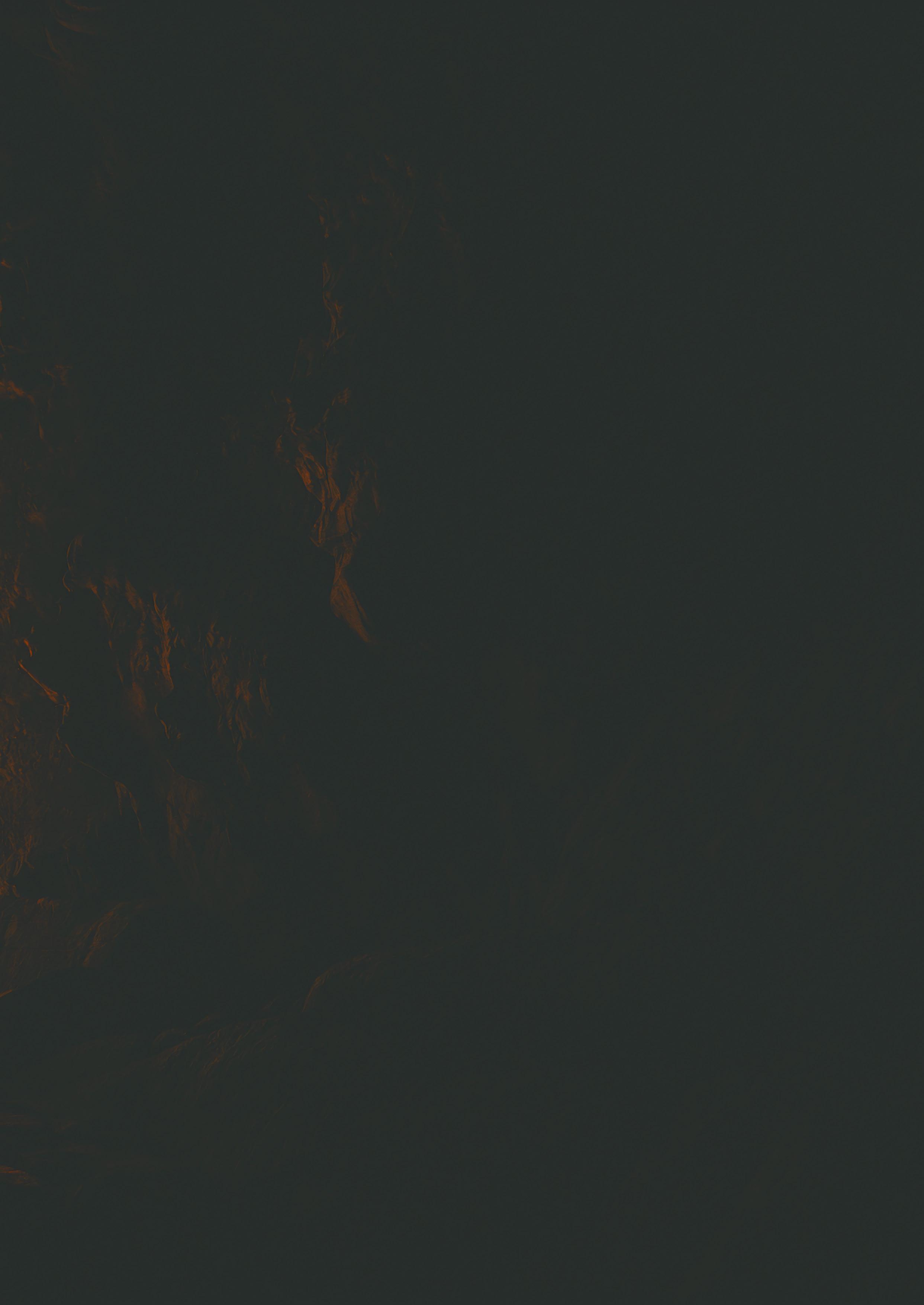
“Do not come any closer,” God said. “Take off your sandals, for the place where you are standing is holy ground.”2
When creating this piece, I was inspired by the grace of God despite Moses’ slowness in obeying. The story in Exodus 3 begins with a fearful runaway hiding his face from the light, yet concludes with worship to the LORD. It was not a straightforward transformation, nor a seemingly perfect one. Yet from that bush on Sinai to the shores of the Red Sea, God does not forsake his people. When the Egyptian forces are on Israel’s tail it is the LORD who intervenes - a pillar of cloud by day, a pillar of fire by night.
There was the cloud and the darkness. And it lit up the night.3
And the night passed.
Jonah is a third year architecture student at Oxford Brookes University. If you’re able to separate him from his work, he loves long walks in the countryside or the chance to appreciate some of Oxford’s breath-taking architecture.
in all things
 Marie-Jo Beaubrun
Marie-Jo Beaubrun
The bench at the back of the church is cold it is always cold, even when it is summer, even though you are warm there is buzzing around your ears and the people at the edges of your vision are indiscernible, you remove your glasses so that they are fully obscured.
There is a gorge at the deepest point of the valley, and you stood near it often. It was easier to see than the top of the mountain You saw others’ riches and your two coins and decided for what little they were worth, they were better left unspent.
~
‘Do not stare at me because I am dark, because I am darkened by the Sun.’
~
Israel was beautiful, the Euphrates had deep and clear waters, they twisted over grass and fed golden wheat and their dew in the morning dotted lilies like pearls.
You imagined your Mountains of Gilboa which had neither dew nor rain where no showers fell on your fields which should not be looked upon, as they were dark, light would only darken them.
As your mountains had no sun, there was no grass to be clothed, your lilies were thrown into the fire.
When imagining them, you did not need to run after worry, as worry ran after you It pursued with such intent, desired you so strongly, Like no one else had before With such deep covetous lust that you were never alone; whispers and caresses so unrelenting there was space for no one else.
~
She died on a Sunday.
You lie down near your gorge; frost formed on the hard ground. There were splinters in the church bench, and they hurt.
19
~
Lord what grows from dry ground, What can you plant in a desert?
How is my walk to be blameless oh Lord, when I cannot take a single step. I cannot imagine that you care, when I know sleep but I do not know rest.
How long Lord must I sit in your house when I cannot feel your warmth? I have tasted but I have not seen I have eaten the fruits of the earth and felt the work of human hands, and I am still empty.
I can hear songs of your praises but I cannot sing them for my voice is gone, and I am afraid that even when it is back it will be broken, it will be a sound of sorrow and screeching of nails. You cannot use one like me.
~
‘In the same way, the Spirit helps us in our weakness. We do not know what we ought to pray for, but the Spirit himself intercedes for us’1
~
‘It is written: “For your sake we face death all day long; we are considered as sheep to be slaughtered.” No, in all these things we are more than conquerors through him who loved us. For I am convinced that neither death nor life, neither angels nor demons, neither the present nor the future, nor any powers, neither height nor depth, nor anything else in all creation, will be able to separate us from the love of God that is in Christ Jesus our Lord.’2
~
The Israel which God made was beautiful, the Euphrates had deep and clear waters, they twisted over grass fields and fed golden wheat and their dew in the morning dotted lilies like pearls
He took abundant rivers, that were overflowing, Rich and sweet and made tributaries that fed your dry mouth.
20
He took bench splinters with jagged ends and mottled grain: crude and rough and unwanted wood dug into cuts made by human hands That have crevices and corners that are too deep and too nuanced and too complex to heal
And he made a house, And he built a castle, And he erected a temple where the ceilings are so high and the walls are so wide that you can look up raise your head from the cold hard ground of your valley, where worry still whispers but creation groans awaiting splendour and the Glory of His Majesty.
You still cry but, you can breathe.
~
For a long time, the bench at the back of church was cold, you put your glasses back on A jacket was placed on you and it was warm, A hug was even warmer.
You still cannot see the top of the mountain, but you can see the foothills at its base With Him you get up and walk.
~
In all things, God is good.
Marie-Jo is a 4th year studying Biochemistry at St Anne’s College. If she’s not with people or weightlifting you can find her doing one of many random hobbies.
21
giving up knowing: 2000 words of trying not to speak
 Rory Kunz
Rory Kunz
How can I stop what I am about to write from being meaningless? Or, if I am to avoid such a fault, how can I do so without expressing a meaning so far removed from what I am trying to express that what I write becomes no more than a dangerous – even a blasphemous – lie? I wish to say so many things, know so many things. ‘I desire God’ – may I not say that? If I were to say ‘I desire to know God; to know His ways, His works’, would I express what I yearn to say? And, if I would, do I dare? Human beings – mortals, made from the dust to which all shall fade again1 – have toiled so painfully to speak of “the infinity beyond being”,2 the ‘One who Thunders out of the Whirlwind’,3 the ‘One Who ɪs ᴡʜᴏ ʜᴇ ɪs’.4 But I tremble: how dare I speak when, ‘before God’, even the mouths of the innocent condemn them?5 If I, less righteous than Job,6 asked to know some small part of God’s ways as he did,7 if I pleaded with God to let me address Him, just for a moment8 – accepting even death that I may do so9 – would I not also “darken [His] counsel by words without knowledge”?10 I cannot bear to stop my chasing after wind11 –my longing to know what cannot be known, to speak of what is beyond speech – but I must. If I am ever to be taken ‘out of the darkness’, I must plunge deep into that same darkness of wordlessness and unknowing.12
“Absurdity of absurdity”,13 says Qoheleth, the teacher of Ecclesiastes. I do not understand the world when it is like this; two undeniable realities contradict each other, and I cannot comprehend it: this is what ‘absurdity’ is.14 “Absurdity of absurdities! Everything is absurd”.15 Wickedness is where justice should be;16 the righteous are treated as if they were the wicked;17 all we strive for either fails, or, when we die, all is given to someone else who has not worked for it.18 Yet, is it not also written that “God gives wealth, possessions, and honour”,19 that “He has made everything suitable for its time”,20 that “whoever obeys a command will meet no harm”?21 I will not say ‘God knows how these contradictions are solved’, or ‘the afterlife will put everything
into place’ – and this is certainly not a hope Qoheleth alludes to.22 Why can I – how could I – look beyond a ‘human perspective’ (and ‘into the mind of God’!) for answers to the absurdities of life? We are human beings, confined to the lives of human beings. When I ‘take on a perspective’ of something entirely other to me, I can never learn more than what it would be for me to take on that perspective.23 That there may be, from some completely other perspective, a way to reconcile the world’s absurdity, does not help me – for I am alive; I am a mortal! Any appeal to what is after my death does not help me navigate the absurd life 24 To do nothing is absurd – to let the absurd life subsume me whilst I merely wait for another, is even more so – not least because no one “knows whether the human spirit goes upwards [to heaven]”,25 for “the dead know nothing”.26 Appealing to a perspective I do not, and cannot, have cannot help me, for I do not have that perspective. Nothing has become clear, for it does not seem clear. No – we are constrained to our human unknowing, and that is all. And so, writes Qoheleth, “you do not know the work of God”27 – indeed, “God has made [everything the way it is] so that mortals may not find out anything that will come after them”;28 mortals “cannot find out what God has done”.29
The absurdity of the world is not without effect – “God has done this, so that all should stand in awe before him”.30 We all remember righteous Job, who, well-fitting Qoheleth’s observations,31 was afflicted with such terrible loss. We must also remember, however, that in The Book of Job, the Accuser (Hebrew: hassatan; ‘Satan’) is a member of God’s heavenly council, acting as an ‘inquisitor of humanity’;32 he is not the ‘Archenemy of God’, a figure we meet only in later Jewish tradition.33 The Lᴏʀᴅ, without any provocation, suggests that the Accuser “consider[] my servant Job”34 – that is, the Lᴏʀᴅ decided to “destroy him for no reason”.35 Yet what can Job do? There is no arbiter to ensure the Lᴏʀᴅ deals justly with Job’s plea,36 (indeed, who could?), and, though Job knows that he is innocent, he will never be able to make the Lᴏʀᴅ listen to or pay attention to his case, for
23
the Lᴏʀᴅ will do whatever He wills.37 Again and again, Job seeks desperate answers; again and again he is told that to seek is to misunderstand.38 Oh, righteous Job – listen to the words of Qoheleth! To apply one’s mind “to know wisdom […] is but a chasing after wind. For in much wisdom is much vexation, and those who increase knowledge increase sorrow”.39 Oh Job, “consider the work of God; who can make straight what he has made crooked?”40 What can one do? – “with many dreams comes absurdity and a multitude of words; but fear God.”41 There is no gain in speech. We can only submit to God; there is nothing we can do but fear Him.
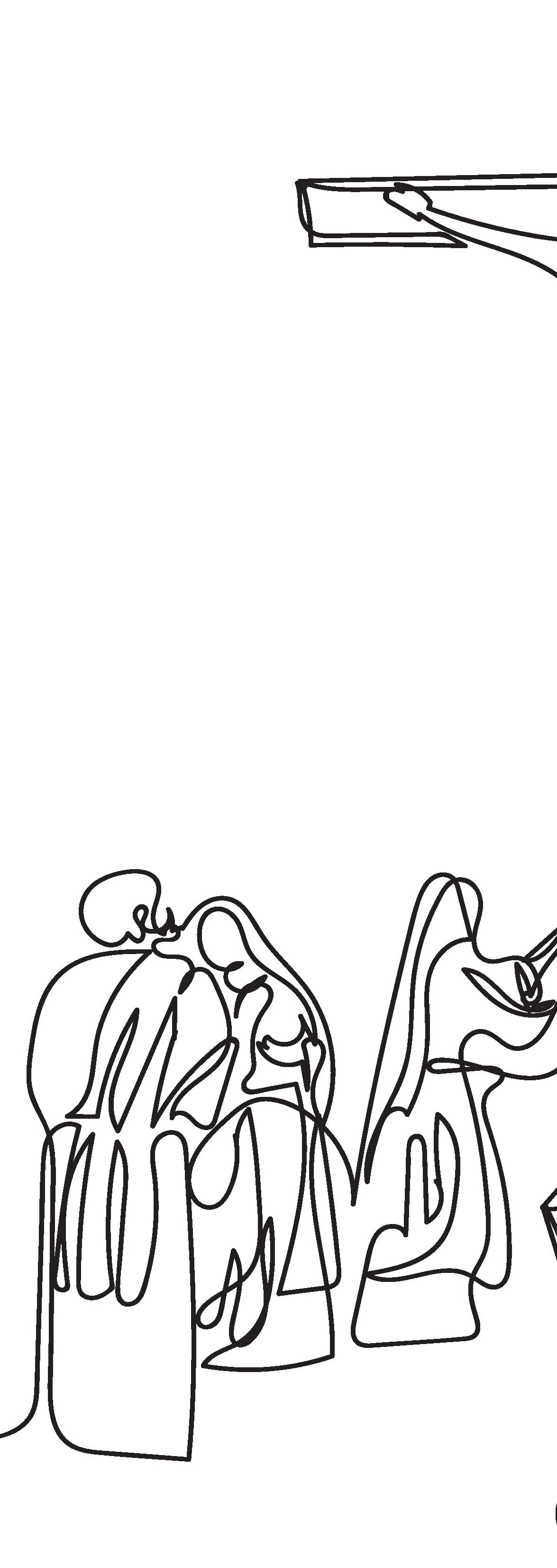
To fear the Lᴏʀᴅ is to ‘submit affectively’ to Him; to be affected by His sheer and unfathomable power – his sheer beyondness – and to know, as Job began to know,42 that resistance to Him is beyond futility, that there is nothing to do but completely relinquish control.43 There is serenity in the absurd only for those who accept their relationship to it44 – but when there is nothing that can be done or said or known, all that is left is submission.
Yet, I will not say ‘show me God that I may submit to Him’;45 I do not understand what would come out of my mouth. Dionysius –that wise and secretive Areopagite46 – had difficult words to say on this matter: “When, for instance, we give the name of ‘God’ to that transcendent hiddenness […] what our minds lay hold of is in fact nothing other than certain activities apparent to us. […] As we consider that hiddenness […], we find ourselves witnessing no divinising, no life, no being which bears any real likeness to the absolutely transcendent”.47 So too were difficult words given to Job: “The Almighty – we cannot find him; He is great in power. […] Therefore, mortals fear Him”.48 Whenever I try, no matter how hard, to consider something ‘beyond thought’, I consider only something that is within thought – for, if something is thought of, it is thinkable. It is not that Job cannot find ‘one of the existing objects in the universe’; no, that for which Job seeks is “not contained in being, but being is contained in him”49 – He is (Oh, Lᴏʀᴅ – how
my assertions fail to reference you!) existent beyond existence; the source and foundation of all that exists, even of existence itself! If the things that are – the things that exist – are the things that ‘have being’, and if knowledge concerns what is the case, then whatever transcends being, transcends knowledge!50 “God is in heaven, and you upon earth; therefore let your words be few”!51
And yet, still I yearn to say that ‘I desire to know God; to know His ways, His works’. And I have already failed in my restraint; I have uttered foolishness when all I desire is the power of God.52 If I may not know, then let me taste and see that the Lᴏʀᴅ is gracious! – for I will be happy in that refuge.53 Let me understand the man from Tarsus: “if anyone thinks that they have achieved knowledge, they have not begun to know as they ought to know”.54 If it has been written that “I will destroy the wisdom of the wise”,55 then let me destroy any understanding I have coveted and cloistered within me. If, as the Areopagite says, the ‘One who is above all things’ is above words and understanding –brighter than and beyond all light56 – then only to those who “leave behind them every divine light, every voice, every word
24
from heaven, and who plunge into the darkness where, as scripture
darkening – for, in that darkness, so will shift the very capacity to see.68
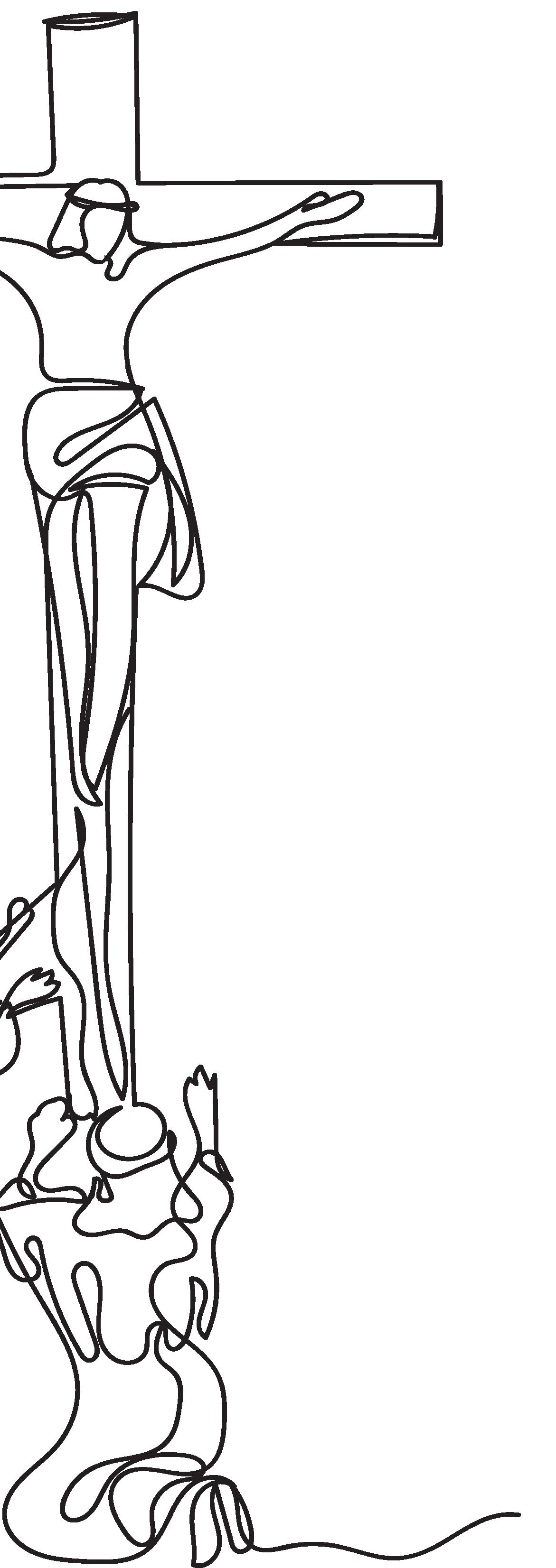
proclaims,57 there dwells the One who is beyond all things”, can anything be “made manifest”?58 “God chose what is foolish in the world to shame the wise”;59 let me be a fool that I may understand!60
If thoughts about the ‘unthinkable’ can refer only to that which is thinkable, then, if words like ‘God is faithful’61 are doing anything meaningful, they cannot be doing this by ‘reaching out’ to an object and representing it like a ‘picture of reality’ that I can have. How often have I tried to have some god in my mind! But none can rest while lying on human wisdom62 – there exists only that which is built upon the giver and source of all speech and all knowledge.63 If all I believe – all that I am – is to rest on the “power of God”, I cannot be full of “plausible words of wisdom”. It is “in weakness and in fear and in much trembling” – in words spoken by one who “decided to know nothing among you except Jesus Christ, and him crucified” –that we see “a demonstration of the Spirit and of power”.64 I see no spectacle here –no meanings; only words without reference that tremble at the throat as they struggle to come out. These are words that shape me into the mind of Christ65 – into the knowing that is being known; and being known in my entirety! For in being known there is vulnerability;66 a vulnerability that opens me, that takes me over to Christ. It is ongoing, it demands prayer and contemplation,67 it is all consuming. It is to submit oneself entirely to the entirely unknown, even at being led into a profound sense of the mind’s
If I am to see what I long to see, I will find it in those trembling lips; lips that hang cut-blooded with gall, cut tongue spitting out breath – lips that gasp like death and the power of God: “Father, forgive them...”69
Rory Kunz lives between Oxford and the West Yorkshire moors. He is in his final year of studying Philosophy and Theology.
25

throne
Grace Burney
I’m no longer alone. Surrounded - not by strife, by sorrow, by angst But by You. You alone Lord are worthy You alone Lord are Lord Be Lord of my life Cover all my strife Comfort all my sorrow Calm the storm inside Lord you reign above Above every fear, in a place of no tears Let me put nothing before you Nothing above you Lord let nothing get in the way of my communion with you Not distraction, not hurry, not guilt Let me see others how you see them Loved, unconditionally Known, unfathomably Cherished, wonderfully Lord thank you for all that you are I keep you on the throne I lift your name on high From now until the day I make my home with you
Your word depicts a throne of righteousness, justice, peace, grace, sanctuary, love A throne holy and glorious An everlasting throne
Grace is a 4th year Law student at Exeter College. When not in Indonesia, she can ususally be found dancing, singing out of tune to Hamilton, or making the most of her student discount in Leon.
27
footnotes
kintsugi
(1) https://en.wikipedia.org/wiki/Kintsugi
in all things
(1) Romans 8:26 (2) Romans 8:36-39
holy ground
(1) Exodus 3:1-2 (2) Exodus 3:5 (3) Exodus 14:20
giving up knowing: 2000 words of trying not to speak
(1) Genesis 3:9, Ecclesiastes 3:20 (2) Dionysius the Areopagite; Luibheid, C. (trans.), Pseudo-Dionysius: The Complete Works (Paulist Press,1987), The Divine Names, 5888 (3) See Job 38:1f (4) Exodus 3:14 (5) Job 9:20 (6) Job 1:1, 8; 2:3 (7) E.g. Job 7:17-21; 13:22-25; 21:7-26; 24:1 (8) E.g. Job 13:3, 22; 23:3-5; 31:35 (9) Job 13:15 (10) Job 38:1 (11) Ecclesiastes 2:17 (12) See Exodus 20:21; Dionysius, The Mystical Theology, 1000C (13) Ecclesiastes 1:2, Here I am following Michael Fox’s translation of the Hebrew ‘hebel’, often translated ‘vanity’ (14) Fox, M. A Time to Tear Down and a Time to Build Up: A Rereading of Ecclesiastes (Eerdmans, 1999) p.31 (15) Ecclesiastes 1:2 (16) Ecclesiastes 3:16 (17) Ecclesiastes 8:14 (18) Ecclesiastes 2:18-23 (19) Ecclesiastes 6:2 (20) Ecclesiastes 3:11 (21) Ecclesiastes 8:5 (22) Fox, p.35 (23) Nagel, T., ‘What Is It Like to Be a Bat?’, The Philosophical Review 83(4), 1974, p.439 (24) Fox, p.49 (25) Ecclesiastes 3:19-21 (26) Ecclesiastes 9:5
28
(27) Ecclesiastes 11:5. Cf 3:11 (28) Ecclesiastes 7:14, my italics (29) Ecclesiastes 3:11 (30) Ecclesiastes 3:14 (31) See Ecclesiastes 8:14 (32) Job 1:6; 2:1 (33) Avalos, H., ‘Satan’, in The Oxford Guide to People and Places of the Bible, (OUP, 2001) (34) Job 1:7-8; 2:2-3 (35) Job 2:3, my italics. Hebrew: hinnam; חִנָּֽם Lasater, P. ‘Justice and God’ (Lecture, Oxford HT7) (36) Job 9:33 (37) Job 23:1-17 (38) E.g. Job 11:1-12; 15:1-16; 38:1-40:1 (39) Ecclesiastes 1:17-18 (40) Ecclesiastes 7:13 (41) Ecclesiastes 5:7, with hebel read as ‘absurdity’ (42) E.g. Job 9:3-4; 42:1-6. Between these passages, Job sometimes seems to forget this. (43) Lasater, P. Facets of Fear, (Mohr Steinbeck, 2019), pp.23-25, 45-48. ‘Fear’: yare; ‘beyondness’: nora (44) Morgan, J. ‘The Burden of Knowing: Camus, Qohelet, and the Limitations of Human Reason’, Eleutheria 2(1), 2012, p.90 (45) Cf Matthew 2:8b; John 20:25, 28-29 (46) That is, the author writing under the pseudonym ‘Dionysius the Areopagite’, c. 5th Century (47) Dionysius (trans. Luibheid). The Divine Names, 645A-B (48) Job 37:23-24, my italics (49) The Divine Names, 824A (50) The Divine Names, 593A (51) Ecclesiastes 5:2 (52) Cf 1 Corinthians 1:18-19 (53) Psalm 34:8 (54) That is, St Pauls’ words in 1 Corinthians 8:2; following Thiselton’s reading, as quoted in Henriksson, G. ‘To Know and Be Known: Towards a Pauline Epistemology – 1 Corinthians as a Test Case’, Teologisk Tidsskrift 11(1), 2022, pp.35-36 (55) 1 Corinthians 1:19, quoting Isaiah 29:14 LXX (56) The Divine Names, 869A (57) Exodus 20:21; cf Exodus 19 (58) Mystical Theology, 1000C (59) 1 Corinthians 1:27 (60) 1 Corinthians 3:18 (61) 1 Corinthians 1:9 (62) Cf 1 Corinthians 2:5 (63) Eastman, S., ‘Love’s Folly: Love and Knowledge in 1 Corinthians’, Interpretation 72(1), 2018, p.14; cf 1 Corinthians 1:5 (64) 1 Corinthians 2:1-4 (65) 1 Corinthians 2:16; Philippians 2:5; 4:2 (66) Henriksson, ‘To Know and Be Known’, p.39 (67) Coakley, God, Sexuality, and the Self: An Essay ‘On the Trinity’, (CUP 2013) pp.18-19, 55-56 (68) Coakley, pp.19-20 (69) Luke 23:34
29
team
THROUGH A GLASS DARKLY EXECUTIVE COMMITTEE
Grace Burney Lily Carson Susie Dowsett Benjamin Sharkey
WITH THANKS TO
Hugh Burney
All of our contributors
IMAGE
CREDITS
All images used are public domain except as noted: pp.8-9, Susie Dowsett pp.18-19, Jonah Ling
All elements used are from Canva or Adobe Stock
about
Through a Glass Darkly is a student-led journal of Christian thought and art committed to expressing that the gospel of Jesus Christ is living and active in our fields of study and creative expressions as much as it is present in our books and college names. We seek to provide a space for students to test the veracity and credibility of the Christian faith, and to find that it holds true and enriches life. We desire to honour our God-given calling as students to critically explore and see our platform as a way to engage with faith intellectually and critically. We hope that this journal is not the end of the conversation, but the start of one. We know that all we know, we know in part, and that the Lord will illuminate and reveal more to us the more we seek after Him.
Through a Glass Darkly is part of the Augustine Collective, a network of student-led Christian journals in university campuses throughout the United States and the United Kingdom. For more information, see augustinecollective.org
Through a Glass Darkly is not affiliated with any church or religious organisaiton, and the opinions expressed in the publication do not necessarily reflect those of the editors.
All content copyright © 2022 Through a Glass Darkly and its contributors. All rights reserved. Contact us at oxfordtagly@gmail.com, or connect with us on Facebook or Instagram at @throughaglass.ox
30
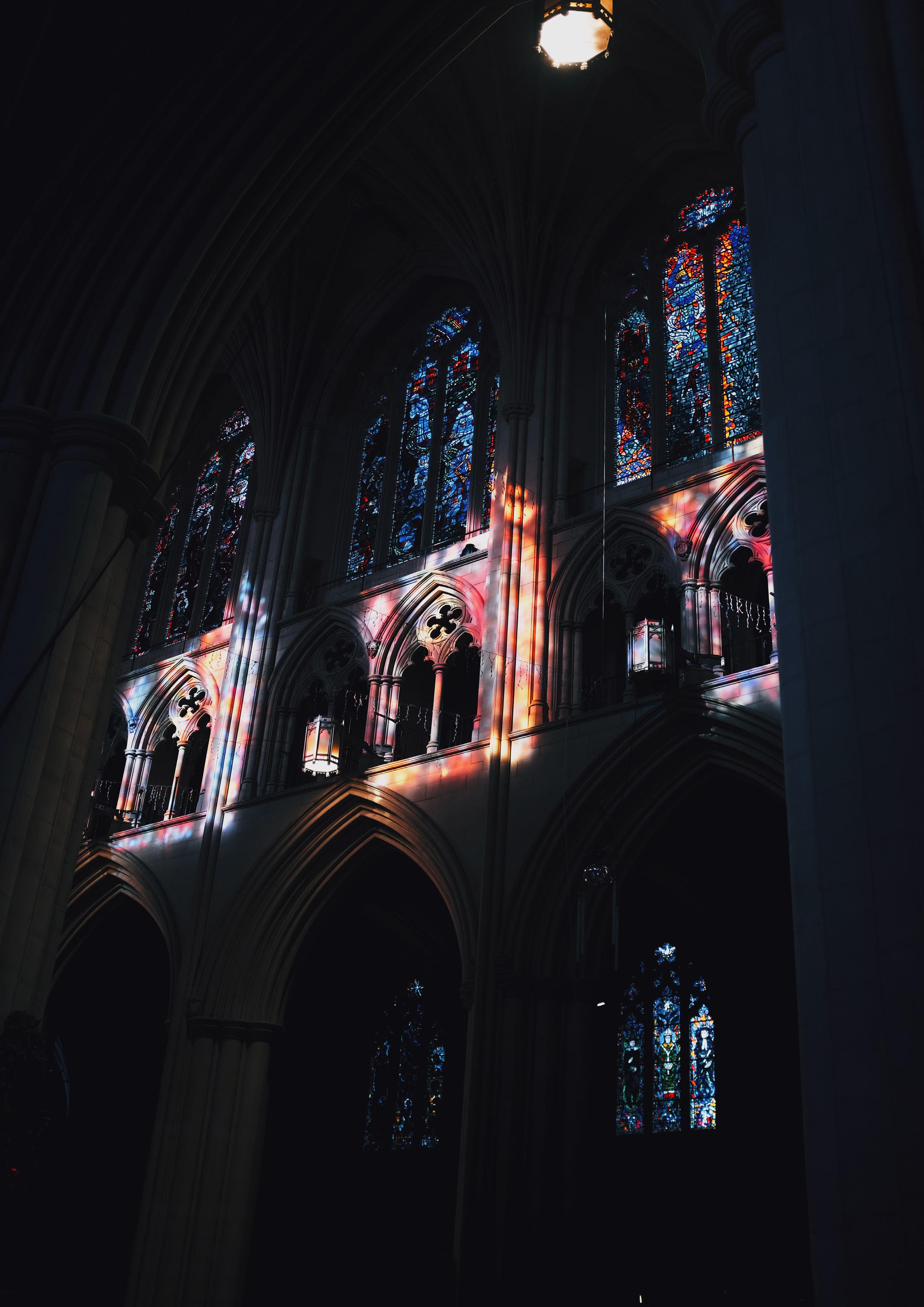
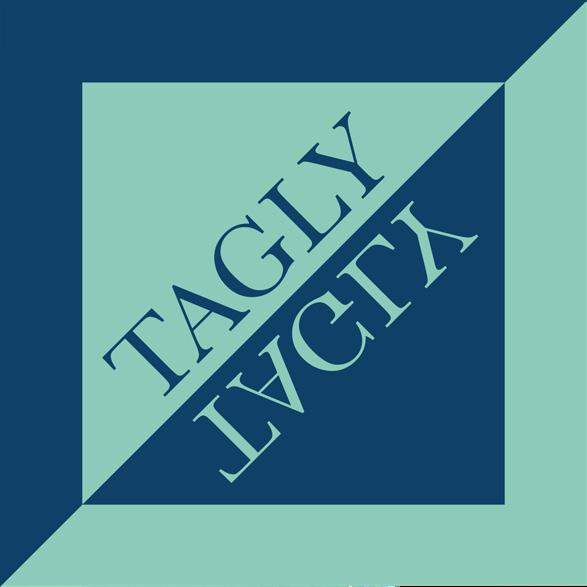
32















 Marie-Jo Beaubrun
Marie-Jo Beaubrun
 Rory Kunz
Rory Kunz




